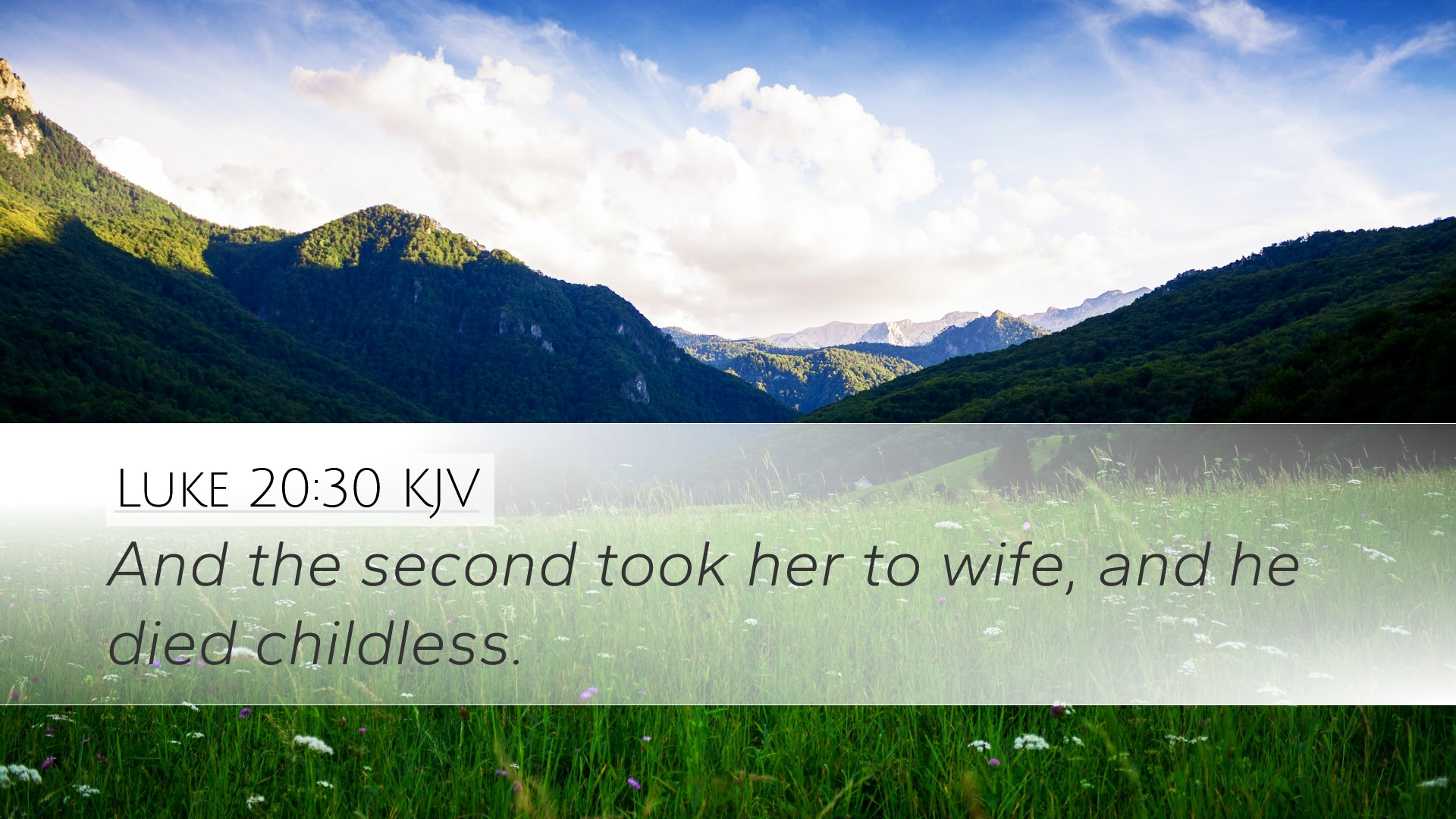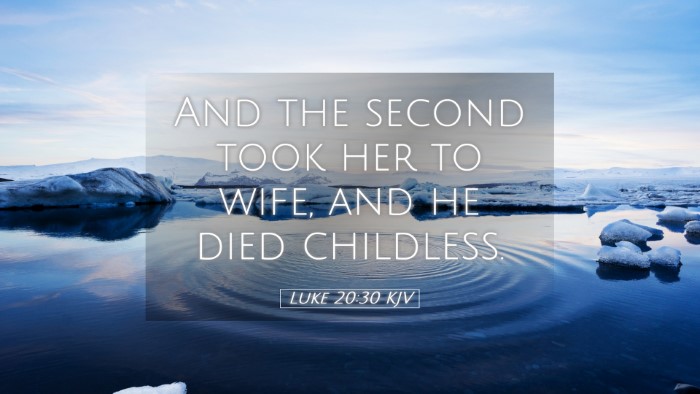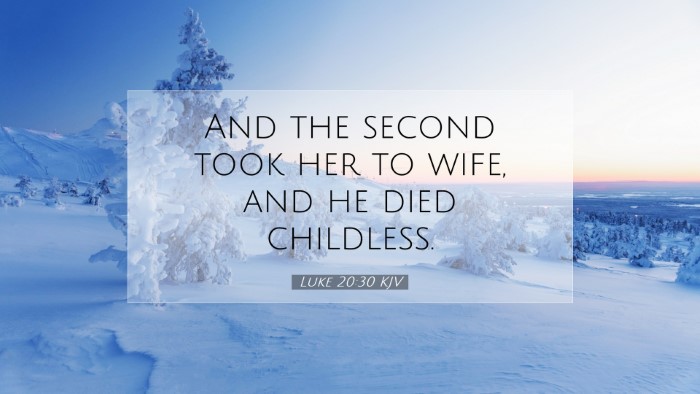Luke 20:30 - Commentary Summary
Luke 20:30 states, "And the second..." This verse is part of a larger discourse where the Sadducees, attempting to challenge Jesus on the doctrine of the resurrection, present a hypothetical scenario concerning marriage and the afterlife. This commentary aims to draw from insights provided by notable public domain scholars like Matthew Henry, Albert Barnes, and Adam Clarke to offer a meaningful summary for pastors, students, theologians, and Bible scholars.
Contextual Background
The challenge posed by the Sadducees revolves around the Jewish law of levirate marriage (Deuteronomy 25:5-10), which obligates a man to marry his deceased brother's widow to produce offspring in the brother's name. This practice underscores the cultural significance of lineage and inheritance. The Sadducees, who do not believe in the resurrection, pose a question that, on the surface, seems to raise a genuine concern about the implications of resurrection regarding marital relationships.
Insights from Matthew Henry
Matthew Henry emphasizes that the scenario created by the Sadducees is intentionally absurd, designed to discredit the resurrection. He argues that their approach reflects a misunderstanding of both Scripture and the power of God. Henry notes, "They thought they could puzzle Christ, but they only revealed their own ignorance." He highlights that Jesus' responses reveal the limitations of earthly reasoning in understanding divine matters, illustrating that the resurrection transcends human experiences, including marriage and death.
Insights from Albert Barnes
Albert Barnes provides a detailed analysis of the Sadducees' question, emphasizing their denial of resurrection and the implications of their argument. He notes, "They thought to make a mockery of the doctrine by presenting it in a ridiculous light." Barnes explains that the hypothetical marriage of seven brothers serves to illustrate that the Sadducees are more concerned with the mechanics of resurrection than with the essence of eternal life. He expounds upon the nature of resurrection, asserting that life after death will be fundamentally different from our earthly existence, as individuals will be like angels, not bound by earthly relationships.
Insights from Adam Clarke
Adam Clarke approaches the passage with a focus on the cultural and societal implications of marriage in Jewish tradition. He suggests that the Sadducees’ question, while presented in a mock-serious manner, reflects genuine concerns of the people regarding familial fidelity and legacy. Clarke writes, "They were arguing from the law of Moses, which they thought was superior to any teaching of Jesus." He emphasizes that Jesus not only counters their argument effectively but also reorients their understanding of life after death, drawing attention to the nature of relationships in the kingdom of God.
Theological Implications
This discourse reveals several theological truths essential for understanding the Christian faith:
- The Nature of Resurrection: The resurrection is free from earthly constraints. Jesus clarifies that post-resurrection existence will not follow earthly customs and relationships.
- Understanding of the Kingdom of God: The understanding of relationships will be transformed in the afterlife. The faithful are depicted as having a different status, as children of God in a kingdom where earthly institutions are rendered irrelevant.
- Challenge of Human Logic: Those opposing spiritual truths often resort to human reasoning, which can be flawed. The Sadducees’ logical construct fails when faced with the divine revelation provided by Jesus.
Summary and Application
Luke 20:30 serves as a crucial text to remind believers of the transcendent nature of God's promises, particularly concerning life after death. For pastors and theologians, this passage challenges the church to teach and elucidate the hope of resurrection within the context of spiritual truths, free from worldly limitations. The implications of being raised in the likeness of Christ compel deeper theological reflection on our identity as children of God and our future hope.
In conclusion, engaging with Luke 20:30 encourages a rich exploration of the resurrection's significance, the nature of God’s kingdom, and the folly of human reasoning versus divine wisdom. It beckons followers of Christ to embrace not only the teachings of Jesus but to fully immerse themselves in the realities of promised eternal life.


